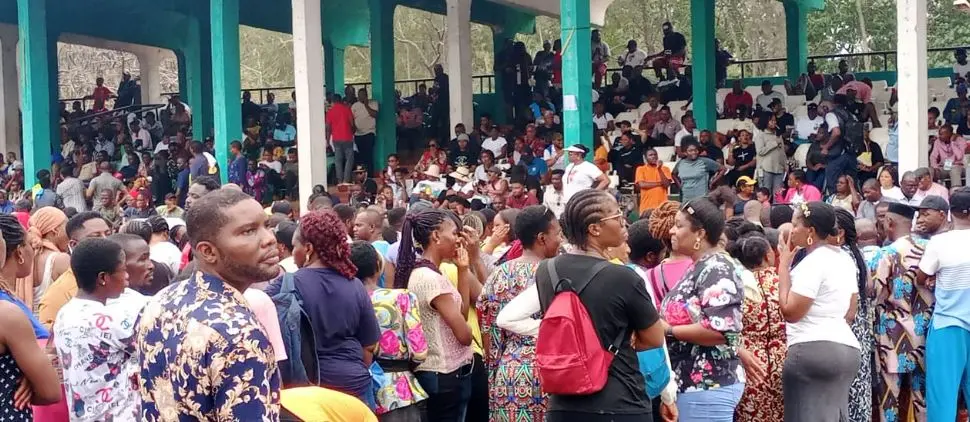
Finding uniforms that fit Ukrainian women serving on the front line is difficult. One couple seeks to correct it
As they hunch over a box, Andrii Kolesnyk and Kseniia Drahanyuk are both beaming with joy.
They are set to unload the first-ever military outfit for expectant women in Ukraine, which they just ordered after receiving a request from a pregnant sharpshooter.
Before the conflict began, the young couple worked as TV journalists, but they are now entirely focused on their own NGO, “Zemlyachki,” or “Compatriots,” which provides essential supplies to women serving in the armed services.
On February 24, the day that Russia invaded Ukraine, Andrii’s sister was dispatched to the front, sparking the idea.
He claims, “She got men’s underpants and men’s uniform.” Everything that was created with males in mind.
It quickly became apparent that clothes weren’t the only thing that servicewomen need. There is a need for everything, including smaller boots, lighter plates for bulletproof vests, and sanitary supplies.
The pair decided to buy products independently of the military, so they resorted to private corporate gifts, charity money, and crowdfunding. A business in Kharkiv, Ukraine, in the country’s east, manufactures certain specialized gear under their own brand, including the new pregnant uniform.
Other products, such as body armor plates, helmets, and boots, are purchased from businesses in Sweden, Macedonia, and Turkey, among other countries. However, Kolesnyk and Drahanyuk said they are having trouble finding winter essentials like sleeping bags and thermal gear, which will be crucial for comfort as winter approaches.
According to Kolesnyk, they have already assisted at least 3,000 women and supplied equipment worth $1 million. He informs MINIECHAT that because they are firing rockets from the front lines, they should do it “in minimal comfort.”
According to the country’s Ministry of Defense, there are now roughly 38,000 women serving in the armed services.
In contrast to competing with it, Kolesnyk asserts, “We are doing this to aid our government.” Their center is packed to the brim with equipment that was purchased using grants and crowdsourcing.
Kolesnyk is saddened by the fact that he cannot fight with his sister, father, and brother-in-law due to a physical impairment.
“It’s difficult for a male to comprehend that you can’t go there when your sister is there. I’m doing all I can to support the army as a whole as well as my family, he adds.
Roksolana, a twenty-one-year-old who only used her first name for security purposes, enters to pick up a uniform and other supplies before leaving for her next mission. She graduated from art school and joined the army in March. She is now a member of an intelligence unit.
She explains, “Having folks who get that we are sick of dressing in clothing that are three sizes too large is really vital. We wore tracksuits and shoes, old flak jackets, and no helmets. We now recognize ourselves as people.
She chuckles as she uses her well manicured long fingernails to lace on her new boots. Drahanyuk gives Roksolana a copy of “The Choice,” the bestselling book by Holocaust survivor and psychotherapist Edith Eger, before they part ways with hugs. The idea is to use this as a tool to aid in the processing of trauma. Zemlyachki has collaborated with military psychologists who are available for women in war.
The Ukrainian military is providing psychological help to other women, including 25-year-old Alina Panina. After escaping the surrounded Azovstal steel mill in Mariupol, Panina—a border guard with a canine unit—spent five months imprisoned at the notorious Olenivka jail in the Russian-controlled Donetsk area.
She was ultimately freed on October 17 as part of an all-female prisoner swap with Russia and entered a military hospital’s required rehabilitation program, where she is still being treated.
Ukraine has requested that a team from the International Committee of the Red Cross visit the camp for Russian prisoners of war.
Panina says in a pizza restaurant owned by veterans in central Kyiv, “I was not prepared [for captivity], and we talked this a lot with other women prisoners that life hasn’t prepared us for such [an] hardship.
She claims that while prison staff “were unpredictable individuals” and sometimes verbally mistreated inmates, she was spared any physical assault.
Her partner’s future is now uncertain. He is still being held captive and works as a border guard. Panina laments as she looks at images of him, “I know he is alive but don’t know in which jail he is.”
She responds simply, “Our guys, our people,” when asked what gives her optimism.





Okk
Good
Nice
Okk
Wow
Good
Unbelievable
Great
Wow
sap
abi na
Aha
Good
Great
Hmmm
Alright
Ok
Yh
Good
Nice
No
Good
It is normal for uniforms to be a little unfit for their women because there have fast body growth nature which tends to hinder fitted suites and other equipment
Nice
Good
Nice
Oh my God
Nice
better option
wise
Yes that’s a good idea bcos there is a need for uniform to be of a good fit
Nice post
Really
Wow
Yet
Great
Good
So good
How far
More better
Good
Nice
Sorry
Hmm
Good
Indeed
Good
Good
Ok
Good one
Correct
Good
Good
Interesting
Wow
Eweeh
Gorgeous 🥰
Clean job👍😁
Good
Stop the strive and embrace peace
Peace
Nice
Good
Good
Ok
Quite difff
Okay
Oh my God
Good
Good
Good
Cool
Nice
That’s ok
Really
Good
Hmmm is well
Nice
Wow
Impressive
Ok
Great
Wow
More elbow to that
Good
Good
Ok
nice
kk
So funny
Good
Veey good
Good
Good
Great
Uniform
good
The country really need help
Let’s embrace peace
Nice
Nice
Good
Good
Nice
Good
Good
It is normal for uniforms to be a little unfit for their women because there have fast body growth nature which tends to hinder fitted suites and other equipment
Cool
Adjustments must be made
Fact
Merciful God
Merciful GOD
Ok
They are set to unload the first-ever military outfit for expectant women in Ukraine, which they just ordered after receiving a request from a pregnant sharpshooter.
Ok
Good
Goodluck
Good
good
Good
Ok
Seeks to correct it
Ohh really
Okay
Cool
Hmm
Great news
No
Good
Good
Nice
Great
Great
Wow
Good
Really
Yeah that cool to hear
Great
Hmmmm…. okay
Okay
Hhh
Hhmmm
Hmmn
Khiyfghyf
Kjjiuiy
okay
Women serving their nation
Women like men